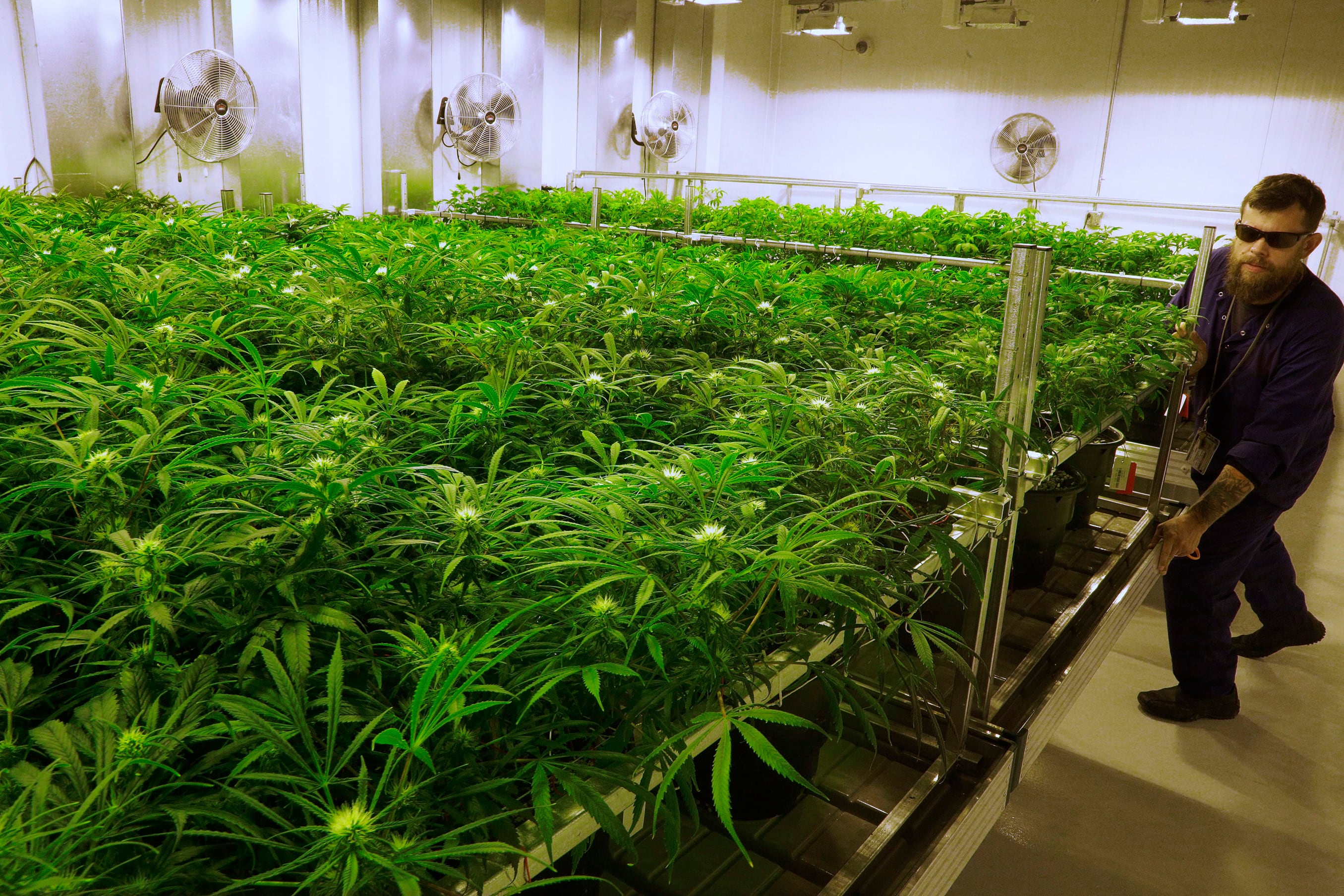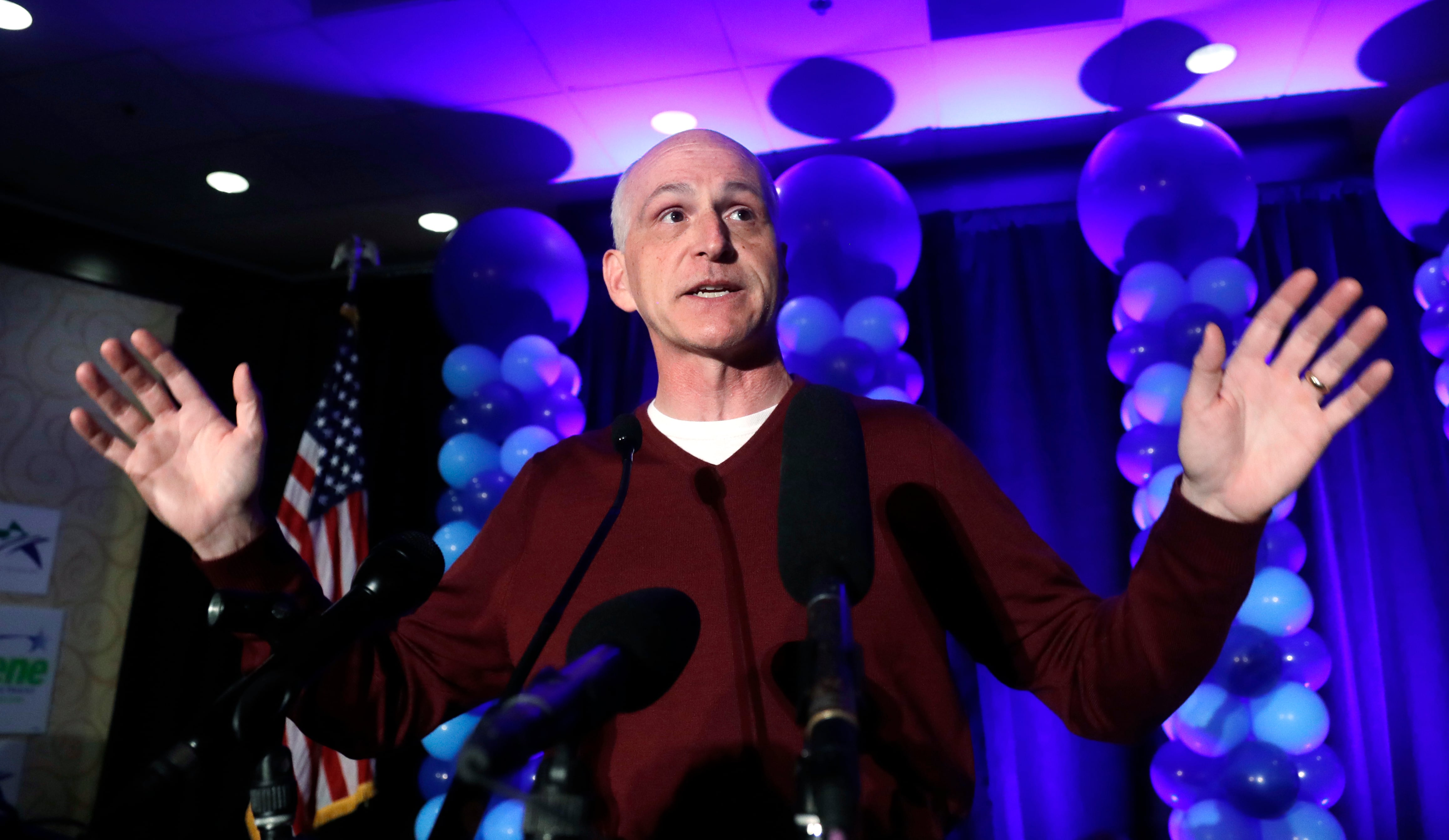WASHINGTON — Lawmakers appear to have momentum for the idea of expanding Veterans Affairs’ research into the benefits of medical marijuana for veterans, but not agreement on the best way to get that done.
Members of Congress unveiled dueling bills last week which they say would require department officials to drop their opposition to testing cannabis for a host of veterans’ ailments, including post-traumatic stress and chronic pain.
VA officials have insisted that their ability to conduct formal research on the drug is limited by federal law, where it is classified as a dangerous controlled substance. Advocates have disputed that, saying institutional reluctance is more to blame than federal regulations.
All of the legislation aims to fix that, removing restrictions — perceived or in statute — for VA scientists to collect data on the benefits of the drug.
RELATED

A bipartisan measure introduced by Rep. Lou Correa, D-Calif., and Rep. Clay Higgins, R-La., would direct a clinical trial of the effects of cannabis on certain health outcomes of adults with chronic pain and post-traumatic stress disorder, and for other purposes.
“With the opioid crisis raging across America, it is imperative to the health and safety of our veterans that we find alternative treatments for chronic pain and service-related injuries,” Correa said in a statement. “It’s time the VA did a formal study.”
The measure already has companion legislation in the Senate, sponsored by Senate Veterans’ Affairs Committee ranking member Jon Tester, D-Mont., and Sen. Dan Sullivan, R-Alaska.
But it has already lost one prominent supporter who worked with the group last session: House Veterans’ Affairs Committee ranking member Phil Roe, R-Tenn., who last session as chairman backed similar legislation on cannabis research.
Roe introduced his own legislation this time, calling for VA to conduct research but without specific clinical requirements. “We should require VA to do this research, but also should let the scientists have the freedom to do their job,” he said in a statement.
RELATED

But supporters of the other measure say leaving out those specifics gives VA room to potentially sabotage the research, omitting key symptoms or questions in favor of broader, less controversial findings.
“The department has had the authority to do this research for a long time, and has continually avoided it,” Correa said. “Our legislation denies them the opportunity to push the buck any longer.”
The distinction is important as medical marijuana supporters try to push the issue through Congress, viewing this session as possibly their best opportunity ever for reforms at VA. Democrats in the House have offered strong support for the issue in the past, and passage of some measure in that chamber could put pressure on Senate lawmakers to follow suit.
Officials at Iraq and Afghanistan Veterans of America have already publicly backed Correa’s bill, and hope the bipartisan support for the plan will result momentum on the issue.
"Our members have spoken loud and clear on this issue,” IAVA Legislative Director Tom Porter said in a statement. “In our latest member survey, 63 percent supported and only 15 percent opposed legalization for the medical use of cannabis. This bill takes a giant and necessary step forward to determine the safety and efficacy of medicinal cannabis."
Members of the House Veterans’ Affairs Committee are expected to debate the measures later this year.
Leo covers Congress, Veterans Affairs and the White House for Military Times. He has covered Washington, D.C. since 2004, focusing on military personnel and veterans policies. His work has earned numerous honors, including a 2009 Polk award, a 2010 National Headliner Award, the IAVA Leadership in Journalism award and the VFW News Media award.




